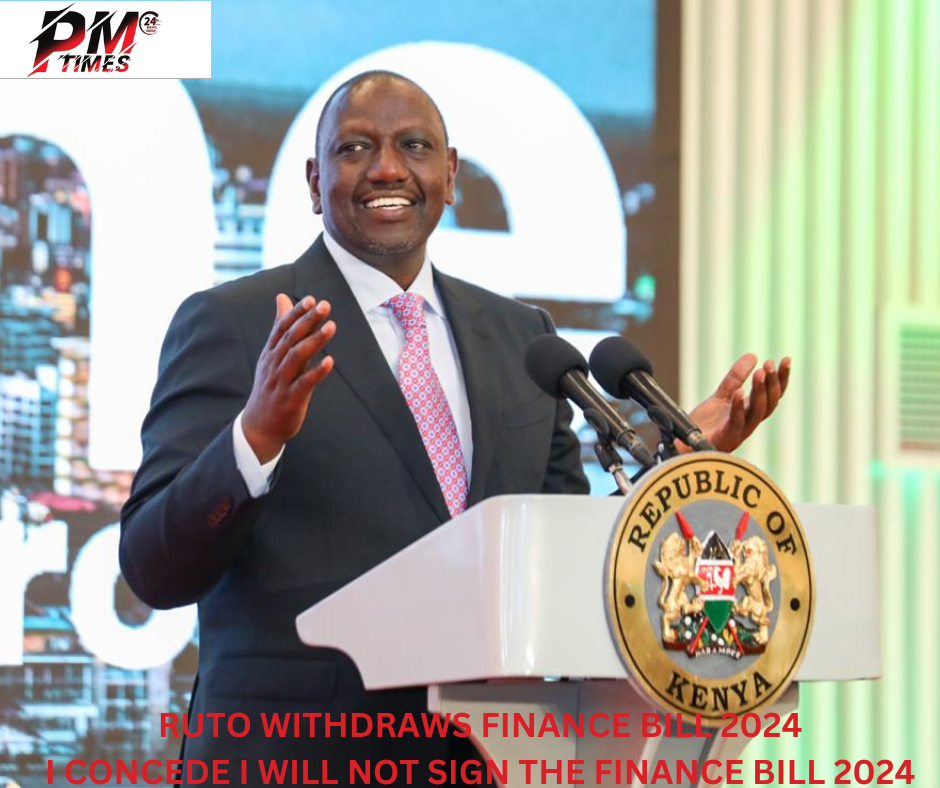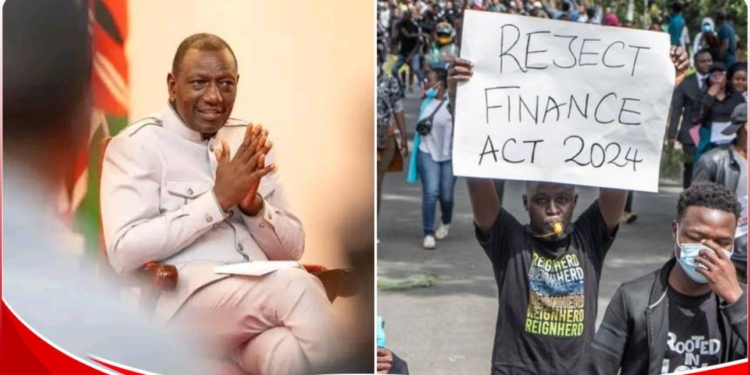In response to growing public criticism, President William Ruto declared on Wednesday that he will not sign the controversial Finance Bill 2024.
The most recent protest follows a week of nationwide demonstrations, mostly organized by young Kenyans who argue that the harsh tax plans will burden a population that is already overburdened.
Speaking at the State House, President Ruto declared he would not sign the bill into law after listening to Kenyans who had overwhelmingly opposed it. He was accompanied by supportive members of parliament.
“Having reflected on continuing the conversation around the Finance Bill, and listening to the Kenyan people who say they want nothing to do with this Bill, I concede,” stated President Ruto.
“Therefore, I will not sign the Finance Bill 2024 and it shall be subsequently withdrawn and I have agreed with these members, that shall become our position.”
In addition, President Ruto promised to interact with Kenyan young to learn about their viewpoints and worries.
“I propose an engagement with young people of our nation to listen to their issues and agree with them on their priority areas of concern.” He stated.
He said that in the future, Kenya will have to have a multisectoral discussion about the national debt and the destiny of the nation.
“I also propose that within the next 14 days, a multi-sectoral, multistakeholder engagement be held with a view to charting the way forward on matters relating to the content of the bill as well as auxiliary issues raised in recent days on the need for austerity measures and strengthening our fight against corruption.”

President Ruto also demanded swift austerity steps to cut spending during his speech on Wednesday.
“I direct immediate further austerity measures to reduce expenditure, starting with the Executive Office of the President and extending to the entire executive arm of government,” stated President Ruto.
He predicted that the executive branch of government would be affected first, followed by the presidency.
“I direct that operational expenditure in the Presidency be reduced to remove allocations for the confidential vote, reduce travel budget, hospitality and purchase of motor vehicles, renovations and other expenditures.”




